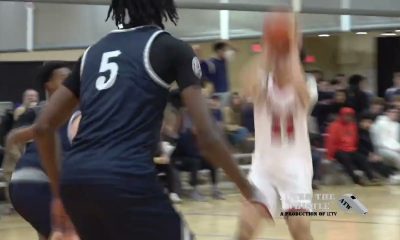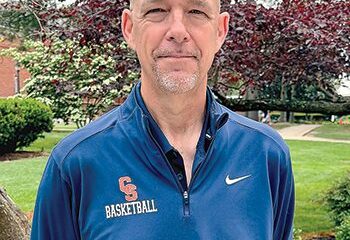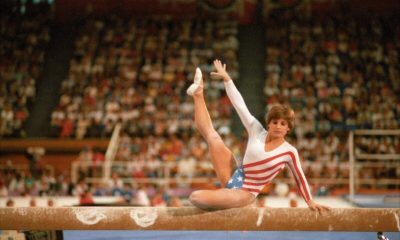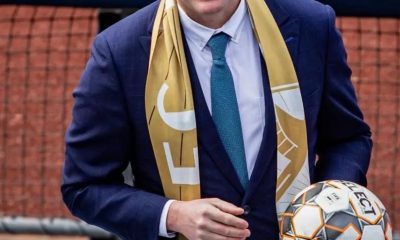NASHVILLE, Tenn. — Perhaps the thing Falon Spearman loved most about track when she gave up gymnastics to focus on running was controlling her own destiny. It didn’t matter what she looked like getting over the hurdles. There were no judges. If she got to the finish line first, she won. It was uncomplicated and fulfilling. Track rewarded what she put into it.
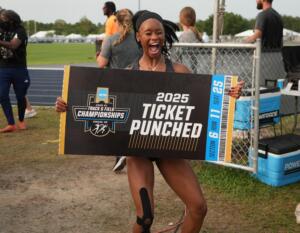 Most of the time.
Most of the time.
There was nothing particularly simple or satisfying about why Spearman didn’t qualify for the 2024 NCAA Outdoor Track and Field Championships. Running in the East Regional in Lexington, Kentucky, she recorded successive personal bests in the 100-meter hurdles. In the quarterfinals, the final regional race from which 12 runners would advance to the NCAA Championships, she ran the 12th-fastest time—one-thousandth of a second slower than the 11th-fastest runner. That runner advanced. Through a quirk of the format, Spearman went home.
The quarterfinals split runners into three heats. The top three finishers in each heat advance to the NCAA Championships, as do the runners with the next three fastest times across all heats. Running in a different heat, another competitor ran a slower time than Spearman but finished third in the heat—advancing automatically and bumping Spearman.
“What was so devastating for me was the thought that I have to do all of this over again next year,” Spearman said of that moment in Lexington. “All of that training and hard work and literally blood, sweat and tears to get to that moment. I bawled because I knew I had to do it all over again–and maybe to get the same outcome the next year. That terrified me.”
She did it all over again as a junior, but the outcome wasn’t the same. Along with teammate Allyria McBride, who qualified in the 400-meter hurdles, Spearman will represent Vanderbilt in this week’s NCAA Championships at historic Hayward Field in Eugene, Oregon. In addition to advancing to compete on the biggest stage in collegiate track and field, Spearman broke Vanderbilt’s school record in the 100-meter hurdles with a time of 13.03 seconds in the opening round of regionals in Jacksonville, Florida.
- Watch Falon Spearman and Allyria McBride compete in the NCAA Championships on Thursday, 6 p.m. CT, ESPN.
There was more hard work, more blood, sweat and tears (you try smacking into a hurdle while moving at a speed most folks need a bicycle to reach). There was also someone there to remind her what was possible, someone who knows better than anyone how hard she’s worked—not just for tenths of seconds in a race but to grow into someone strong enough to push aside a fear of failure and start over. Twins and teammates, Falon and Santana Spearman are different people. They took different routes to Vanderbilt, Falon arriving as a transfer from Duke after her freshman year. But they know how hard it is to be yourself.
It’s why Santana knew Falon could put last year behind her. It’s why she approached her sister before their first race in this year’s East Regional with a simple message.
You’re going to nationals.
Finding Her Font
Falon was about 10 or 11 when she switched her focus from gymnastics to track and field, getting there ahead of Santana. A friend of the family encouraged her to try hurdles. It was a natural fit, the hip flexibility born of her gymnastics training lending itself to the new task. And more than a physical match, hurdling appealed to her in a way that no other event did.
 “I feel like had I not started off with hurdles, I’m not sure how much I would have enjoyed track,” Spearman said. “I love—love—hurdling. Running is fun too, but at the end of the day I’m a hurdler and I genuinely love to hurdle. I think just being able to try my body in different positions and run through the air was very interesting to me from a young age.”
“I feel like had I not started off with hurdles, I’m not sure how much I would have enjoyed track,” Spearman said. “I love—love—hurdling. Running is fun too, but at the end of the day I’m a hurdler and I genuinely love to hurdle. I think just being able to try my body in different positions and run through the air was very interesting to me from a young age.”
Where outsiders might look across lanes of hurdlers and see a blur of identical images, Spearman sees a canvas for creativity. With its prescribed skills and scripted movements, gymnastics felt stifling. On the track, as she poetically puts it, everyone is free to have their own font. On the diminutive side, she doesn’t look or run like many of her peers. She throws her whole body into propelling herself over the hurdles. It isn’t anyone’s idea of textbook form, coaches once comparing her to a spinning top, but it doesn’t matter if it’s effective.
“It doesn’t look very organized when I’m running,” Spearman allowed with a laugh. “I do a lot with my body, which is not a great thing. But when it goes well, it goes well.”
Although 100 meters was her ticket to Eugene this year and has long been her primary event, she has a not-so-secret soft spot for the 400-meter hurdles. She narrowly missed qualifying alongside McBride in that event, as well, while setting personal bests in both the first round and quarterfinals of the East Regional. The longer distance affords more technical grace, as she puts it. There’s time to think and adjust. It’s more of a chess match—albeit one in which seemingly every muscle in your body, not to mention your lungs, encourages you to find something better to do with your time by the final stretch. The 100, by comparison, is a leap of faith, testing just how much you believe in yourself.
“You have to be so aggressive and go so fast, you cannot afford to think once the race starts,” Spearman said. “Your body just has to go into default mode. I’m not exaggerating when I say you don’t have time to think about anything during that race. The hurdles come at you so quick. You have to trust that everything you’ve been doing in practice will copy and paste to the race.
“And that’s a very scary thing when it comes to, for example, regionals where that meet and that one point in time dictates whether or not you’re going to nationals.”
Twins Reunited
Maybe that’s why Santana’s message to her the morning of their first race in this year’s regionals hit home as more than idle encouragement. No one could better read her.
The sisters set out to go to different colleges, even mentally scratching potential destinations off their list if the other showed interest. It wasn’t out of animosity toward each other. It wasn’t a desire to get away from each other, a negative motivation. Instead, it was a positive step toward each making her own way in the world. Even so, all the intentionality in the world doesn’t make it any less strange to be on your own.
 “For the first time, life was happening—school, track, everything—and she wasn’t there to do it with me,” Falon said. “That was just such an interesting feeling, knowing that I have to catch her up on everything. I would actually have conversations with her as if she had been there. And she’d be like, ‘Wait, what are you talking about?’”
“For the first time, life was happening—school, track, everything—and she wasn’t there to do it with me,” Falon said. “That was just such an interesting feeling, knowing that I have to catch her up on everything. I would actually have conversations with her as if she had been there. And she’d be like, ‘Wait, what are you talking about?’”
After a frustrating freshman season that ended earlier than she would have hoped, Falon went to watch Santana compete in the 2023 SEC Outdoor Track and Field Championships. Seeing her sister happy and in her element competing against the best in the country, Falon wondered whether she had made a mistake not considering Vanderbilt. When she entered the transfer portal, Althea Thomas, director of cross country and track and field, was an easy sell. Falon was initially more concerned about pitching Santana on the idea.
She needn’t have worried. With her sister’s blessing, Falon made the move to Nashville.
In high school, the sisters disliked competing against each other. Hurdles weren’t Santana’s sole focus, so it never felt like a level playing field. That held true for a time after Falon transferred to Vanderbilt—only by then it was because Falon felt her lost freshman season put her far behind her thriving sister. Keeping as many lanes and teammates as possible between each other in practices, they tried to avoid comparison and competition.
That has gradually changed, so much so that they now seek out the competition. Part of it was Falon regaining her form. Any tenths of a second between them vanished. Perhaps part was also growing into their shared space at Vanderbilt. They still don’t live together—that would be a little bit too much shared space, Falon notes with mock alarm—but they are close to inseparable nonetheless. Secure in what makes them different, they make each other better on and off track—complete with a little good-natured ribbing.
“I feel like when we do well in the training and we both get fast, we can have the trash talk,” Falon said. “You can just feel the energy when you’re racing against her in practice. The goal is obviously to get to the line first, but you also want to get down off each hurdle fast, so we can just feel each other trying to get off the hurdles as fast as we can. There’s a lot of banter now—and that just means we’re both doing the right thing.”
On to Eugene
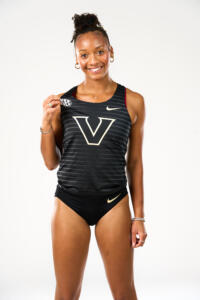 Santana has always been the calm sister, Falon the bundle of energy, not altogether unlike that spinning top to which her coaches compared her. Santana spreads her interest far and wide at Vanderbilt. Ahead of Martin Luther King Jr. Day earlier this year, she worked with peers at Emory to organize the Vanderbilt Athletics’ Day of Service at the King Center in Atlanta. Last year, she studied abroad in South Africa. She’s the one Falon goes to for perspective. She’s the one who counseled Falon in the aftermath of last season’s heartbreaking near-miss at regionals, reminding her that if she did all she could—as evidenced by setting personal bests throughout the meet—then it wasn’t meant to be.
Santana has always been the calm sister, Falon the bundle of energy, not altogether unlike that spinning top to which her coaches compared her. Santana spreads her interest far and wide at Vanderbilt. Ahead of Martin Luther King Jr. Day earlier this year, she worked with peers at Emory to organize the Vanderbilt Athletics’ Day of Service at the King Center in Atlanta. Last year, she studied abroad in South Africa. She’s the one Falon goes to for perspective. She’s the one who counseled Falon in the aftermath of last season’s heartbreaking near-miss at regionals, reminding her that if she did all she could—as evidenced by setting personal bests throughout the meet—then it wasn’t meant to be.
And even this year, when Santana finished just five places and one-tenth of a second shy of advancing to nationals after running a personal best in the quarterfinals, she had the perspective to celebrate her sister’s joy.
“She knew this was my dream since high school,” Falon said. “She knew how much led up to that moment. It was great having someone to share it with, especially someone who knows what you’ve been through. Transitioning from Duke to Vanderbilt was very hard. It was the most difficult thing I’ve ever done in my life—I’m young, so it was definitely the most difficult thing that I’ve done so far. And having someone who’s seen you through it all— and sharing that moment with them—really meant a lot to me.”
As the sisters like to say, when something good happens to one of them it happens to both of them.

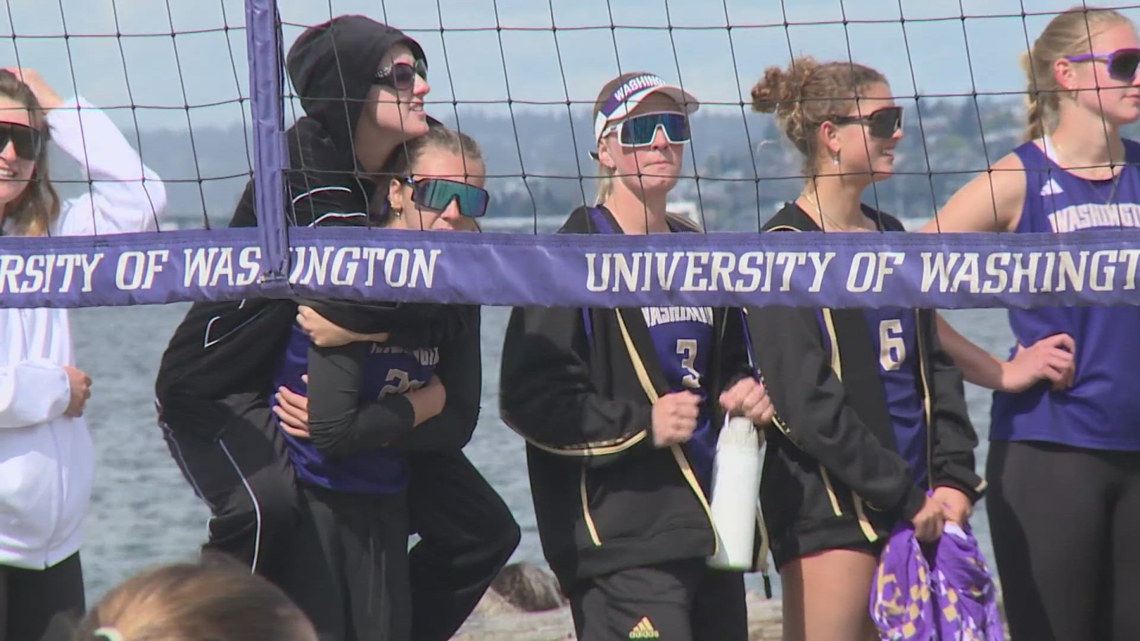

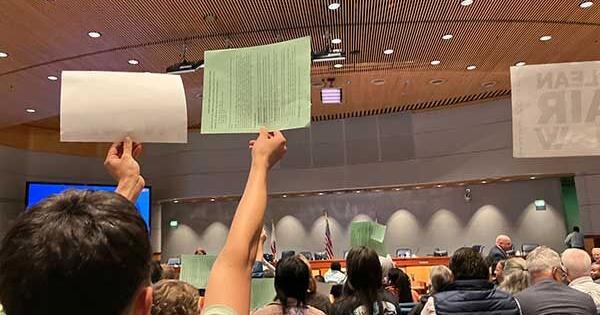


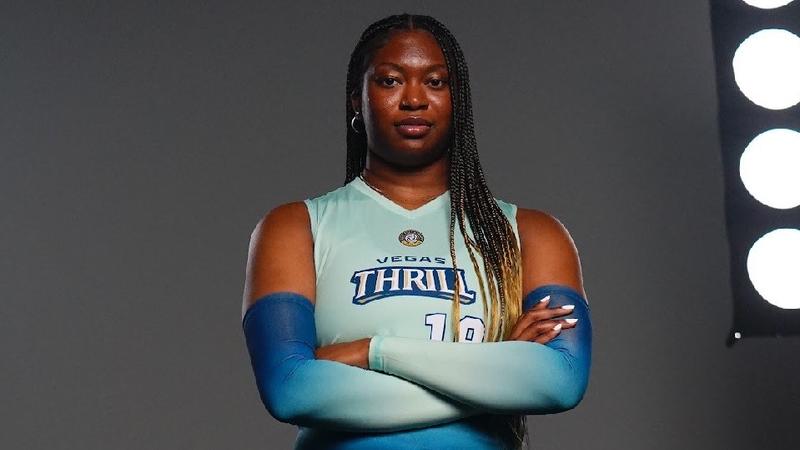
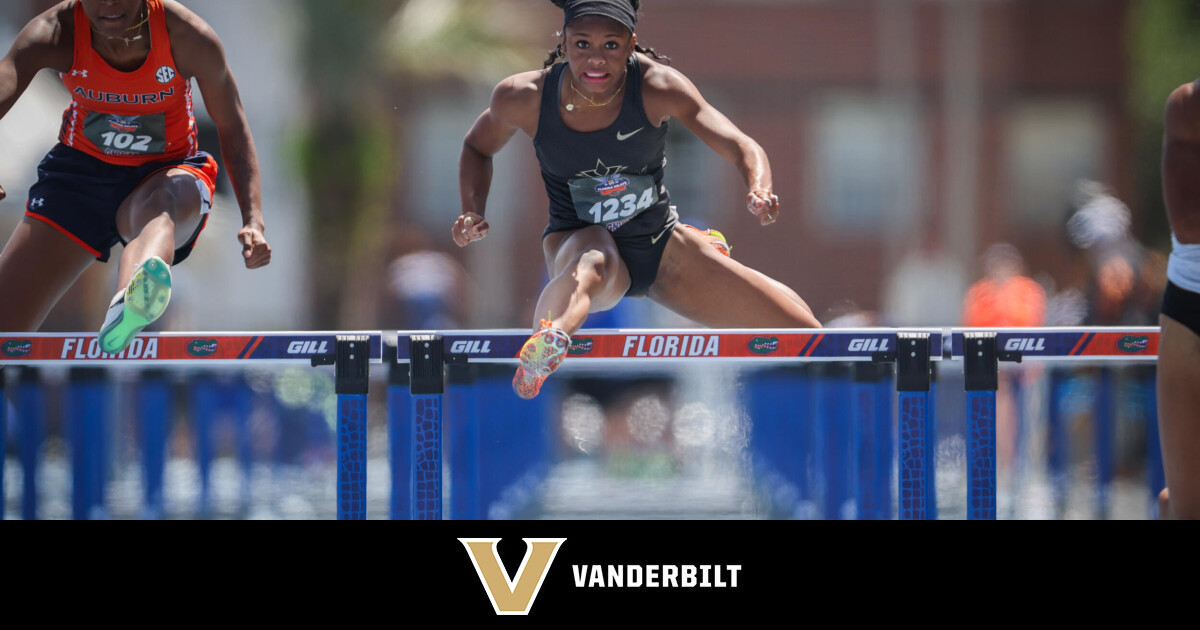
 Most of the time.
Most of the time. “I feel like had I not started off with hurdles, I’m not sure how much I would have enjoyed track,” Spearman said. “I love—love—hurdling. Running is fun too, but at the end of the day I’m a hurdler and I genuinely love to hurdle. I think just being able to try my body in different positions and run through the air was very interesting to me from a young age.”
“I feel like had I not started off with hurdles, I’m not sure how much I would have enjoyed track,” Spearman said. “I love—love—hurdling. Running is fun too, but at the end of the day I’m a hurdler and I genuinely love to hurdle. I think just being able to try my body in different positions and run through the air was very interesting to me from a young age.” “For the first time, life was happening—school, track, everything—and she wasn’t there to do it with me,” Falon said. “That was just such an interesting feeling, knowing that I have to catch her up on everything. I would actually have conversations with her as if she had been there. And she’d be like, ‘Wait, what are you talking about?’”
“For the first time, life was happening—school, track, everything—and she wasn’t there to do it with me,” Falon said. “That was just such an interesting feeling, knowing that I have to catch her up on everything. I would actually have conversations with her as if she had been there. And she’d be like, ‘Wait, what are you talking about?’” Santana has always been the calm sister, Falon the bundle of energy, not altogether unlike that spinning top to which her coaches compared her. Santana spreads her interest far and wide at Vanderbilt. Ahead of Martin Luther King Jr. Day earlier this year, she worked with peers at Emory to organize the Vanderbilt Athletics’ Day of Service at the King Center in Atlanta. Last year, she studied abroad in South Africa. She’s the one Falon goes to for perspective. She’s the one who counseled Falon in the aftermath of last season’s heartbreaking near-miss at regionals, reminding her that if she did all she could—as evidenced by setting personal bests throughout the meet—then it wasn’t meant to be.
Santana has always been the calm sister, Falon the bundle of energy, not altogether unlike that spinning top to which her coaches compared her. Santana spreads her interest far and wide at Vanderbilt. Ahead of Martin Luther King Jr. Day earlier this year, she worked with peers at Emory to organize the Vanderbilt Athletics’ Day of Service at the King Center in Atlanta. Last year, she studied abroad in South Africa. She’s the one Falon goes to for perspective. She’s the one who counseled Falon in the aftermath of last season’s heartbreaking near-miss at regionals, reminding her that if she did all she could—as evidenced by setting personal bests throughout the meet—then it wasn’t meant to be.









































